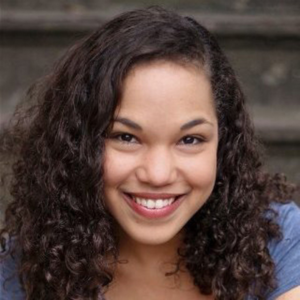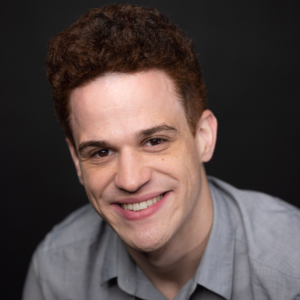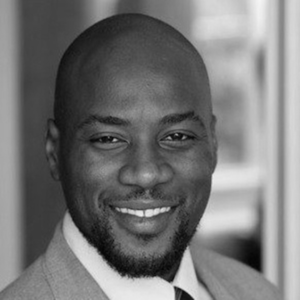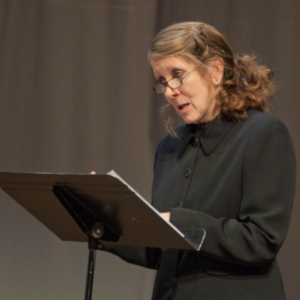 Engaged Theatre’s Measure for Measure tour, Fall 2023
Engaged Theatre’s Measure for Measure tour, Fall 2023
Freehold’s Engaged Theatre will be touring Shakespeare’s Measure for Measure this fall, ET’s
first full tour since 2019. We spoke to director Robin Lynn Smith and actors Sylvester Kamara,
Ayo Tushinde, and James Schilling about their thoughts on the play and the importance of
Engaged Theatre.
Ayo Tushinde James Schilling Sylvester Kamara Robin Lynn Smith
On what resonates with them about the play
Robin
It is a story of human forgiveness that makes space for the whole person The story involves
characters in a world where their full, complex humanity is not allowed to exist: make mistakes,
learn, try again. The Duke and his community are thrown into an imbalance by the pinched
intolerance of the city’s cultural climate. The Duke senses the crisis, and his own failure, and
sets out to find a way to fix the imbalance.
Sylvester
I think we are very quick to judge people and label them as evil or as bad. I think all of us have,
like, shadow sides. Like there’s a mask that we present. And then there’s this other thing that we
are constantly battling against. [A] character in the play is in a predicament where he’s faced
with a situation where he can no longer hide whatever that is [that he’s hiding]. I’m not even
sure if he knows what it is. Most of us don’t know what our shadow sides are. And I think it’s a
universal thing. We all have it, you know? We all have sides that we don’t want other people to
see. And every once in a while it gets triggered.
James
There are characters in Measure for Measure who exploit vulnerable people and do really
horrible things. And there’s a lot of depiction of corrupt power structures, things that we do relate
to in the free, but that they really relate to in the prisons. Measure for Measure is seen as a
problem play because the characters in the play forgive people for things that we, in our modern
context, think of as “unforgivable.” But it’s a play about forgiveness and about challenging
corrupt power structures from the inside out. And so I’m really excited to share this particular
play because I think that audiences are really going to resonate with it and understand it.
Ayo
I would say one thing that’s just very interesting and kind of woo-woo in the stars is that
Measure for Measure was my first professional production at Seattle Shakespeare Company,
but I was in the role of Juliet, who is on stage for maybe five minutes. It’s at the end, and it’s an
important role, but also just so, so minor, that I think it’s very interesting to have that be literally
how it started. And now jumping into this production is how it’s going. It’s very easy to view
[my character] Isabella as a victim, and I don’t think that she is. She actually has a lot of power,
it’s just a different type of power than the men in the play have and it’s a different type of power
than women at that time are supposed to have.
How is Engaged Theatre from theatre for conventional audiences?
Sylvester
I just always feel more alive as an actor, as a performer. It’s like my senses are just more
heightened, because I know they are really paying attention. And sometimes the material may
be quite dense, so it’s up to us to make it accessible to everyone. And that’s an exciting
challenge for me.
I’m not sure I should mention this, but there was somebody who I guess was known in the
prison population as an individual that’s not partial to quote, unquote, “black people.” He sat
there–I noticed him in the audience–and then after the performance, he just came up to me and
shook my hand. He didn’t really say much, he just shook my hand. And I don’t think that has
anything to do with my performance. I just think it’s rare that performances, especially
Shakespeare’s, come into places like that. And sometimes pieces like that are looked as though
that’s only for a certain class of people, which I think is complete BS. But when you bring it to
that population, I think they’re really appreciative
Ayo
I’ve read some of the testimonials from past productions [of the ET tour] and it really does
impact people. Some people are in this cocoon of the system for long enough that being able to
bust out of that through the engagement with art can be a huge pivot for some people. I don’t
know people who have been incarcerated, but I know that people who look like me are a lot
more likely to be incarcerated or treated unfairly in this justice system. I’m really, really honored
that Robin reached out to me.
Robin
It makes us have to tell the truth. We always aspire to tell the truth, but [for Engaged Theater] it’s like, you gotta bring it. The people who are
there in a gym or out in a prison yard–don’t have to stay and watch. They can go and play
baseball. If we’re not going to tell the truth, they’re not going to suffer our foolishness. I
appreciate that about those audiences, because I think it’s a great teacher for all of us, to keep
growing and deepening and making more specific and true what we do.
James
I think everyone who makes art and tells stories wants to feel like it matters. So what I really
liked about the Engaged Theatre tour is that the process is built around serving people who are
incarcerated and relating to their experience. And acknowledging that we are some of the only
community engagement and art that they get, which you can feel when you perform for them.
It’s the Engaged Theatre tour because we are engaging them, but also they engage us. I mean,
they really engage with us in dialogue, and you never have a question about how they’re feeling
about the show. They don’t engage in the “theatre etiquette” (which I put in big quotes) that we
have here in the free. And you know, they are really, really engaged with that. And it’s really
beautiful to see how people will come up to you after the show and be like, “Hey, once I heard
what the play was, I read it, talked about it with some of my friends and my circle. We were
really surprised to see the way that you cut this part or interpreted this.” I mean, they are so
knowledgeable when they are given this opportunity to gravitate around a piece of art and to
think about it and be challenged by it and question it.
Any last thoughts?
Sylvester
I really enjoy working with Robin. It’s like every time I work with her, I discover something about
myself and the art form I’ve chosen. I always–how do I put it? I know what I’m there to serve. I
know what kind of cog I am in the machinery. And it becomes more and more clear, the more I
work with her: that it’s really about the story. I mean, characters make a story, but we’re heading
somewhere, and we all have to be on the same train, car, plane.
James
They [ET audiences] are hounds for truth. I think that’s something Robin has said before, like if
you do not know what your character means, if you are not telling the truth, if you’re not really
pursuing a real objective, and not really telling that story and living in the world, they pick up on
it right away, and they don’t excuse it.
Ayo
I’ve been in Seattle a little bit over a decade. My first professional show was at Seattle
Shakespeare Company, which is exciting considering this Freehold production is also
Shakespeare, so I feel very in my wheelhouse there. I’ve worked kind of all around town. I tend
to focus more on plays that have some political or social commentary to them, like if there’s a
way for it to be considered relevant. So this is definitely in that wheelhouse.
Robin
The Seattle performances are October 26-30. West of Lenin, by donation. Please watch for that,
we’d love to have people come see it. Bring your friends, bring people you think would be
interested in the story. We would look forward to talking with you afterwards.






